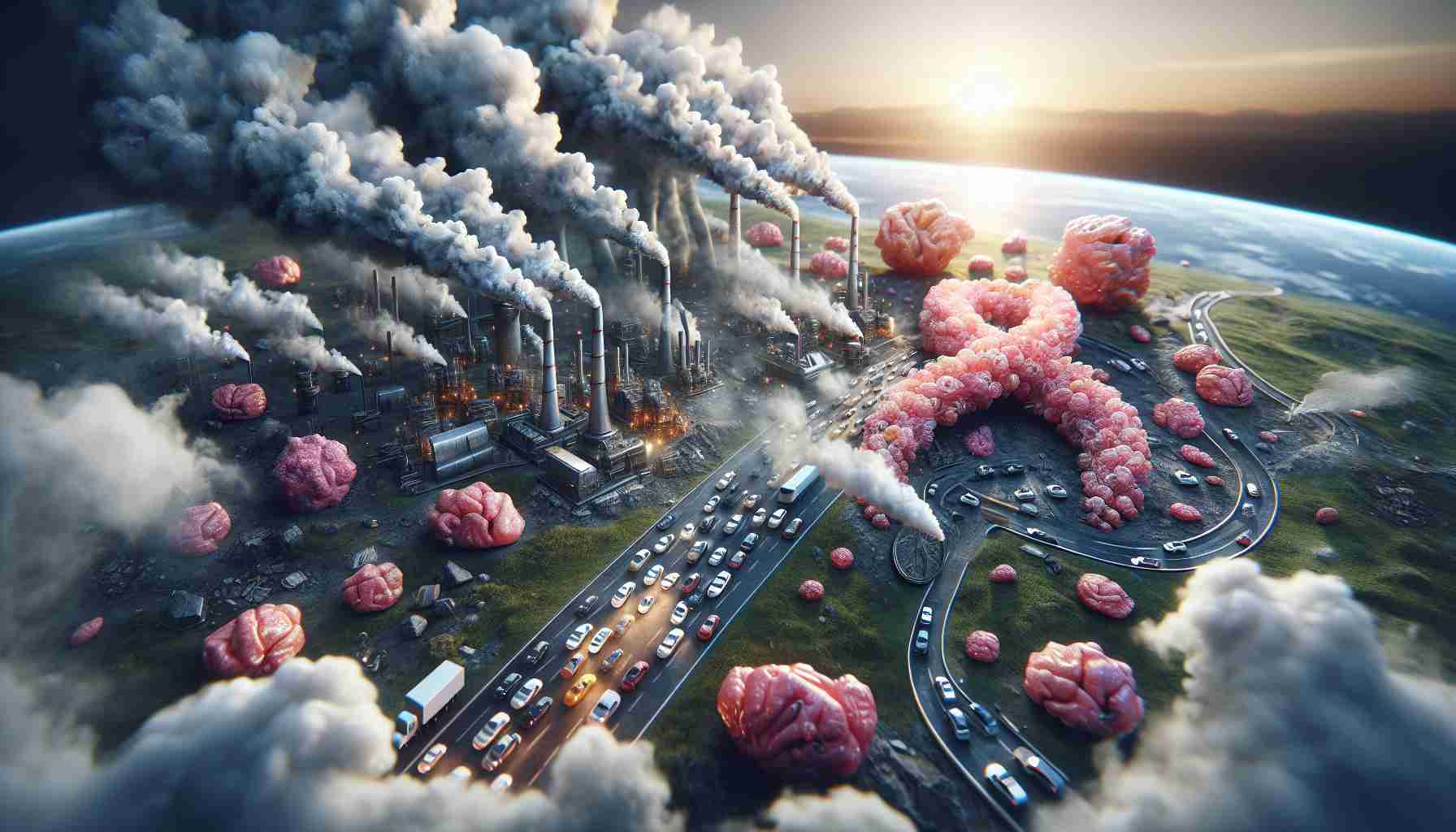The Invisible Threat Looming Over Our Lives
Bryan Johnson, an influential figure in the tech industry and a prominent advocate for longevity, recently brought his attention to a far more urgent crisis: air pollution. During his stay in India, he underscored the devastating impact of polluted air, suggesting that addressing this issue could save more lives than finding a cure for cancer.
India faces a severe air quality crisis, being home to 14 of the world’s most polluted cities. According to the World Air Quality Report 2023, nearly 1.67 million premature deaths annually stem from air pollution-related health issues. Diseases such as chronic respiratory problems, heart conditions, and strokes are leading causes of death, far surpassing those caused by cancer. The situation in Delhi is especially troubling, with air quality levels that resemble the effects of smoking multiple cigarettes daily.
In light of this pressing issue, Johnson proposed practical measures individuals can adopt to protect themselves. This includes using air purifiers at home, monitoring air quality with portable devices, and wearing N95 masks on days when pollution levels soar.
However, Johnson emphasized that individual actions are only part of the solution. Experts urge for large-scale policy reforms aimed at shifting to cleaner energy, tightening industry emissions standards, and expanding public transportation.
As Johnson’s visit highlights, it’s critical that we recognize the dire nature of air quality and prioritize measures that tackle this silent but formidable threat to our health and well-being.
Air Pollution: A Call to Action for Healthier Living
Understanding the Air Quality Crisis
In recent discussions about global health risks, Bryan Johnson has spotlighted air pollution as a more immediate danger than widely recognized health issues such as cancer. With alarming statistics revealing that nearly 1.67 million premature deaths occur each year due to air pollution, particularly in countries like India, it’s clear that urgent action is necessary. This article explores the ramifications of air pollution, effective measures for mitigation, and the broader implications for public policy and individual health.
The Alarming Health Impact of Air Pollution
Air pollution is a significant contributor to a variety of life-threatening health conditions. Chronic respiratory diseases, cardiovascular problems, and strokes are among the leading causes of death linked to polluted air. Research indicates that in cities with severe air quality issues, individuals may experience health ramifications equivalent to smoking multiple cigarettes daily. For instance, Delhi consistently ranks as one of the most polluted cities globally, underscoring the importance of recognizing and addressing the detrimental effects of poor air quality.
Practical Solutions for Individuals
While policy reform is crucial, individuals can also take steps to safeguard their health. Here are some effective methods recommended by experts:
– Air Purifiers: Utilizing air purifiers in homes can drastically reduce indoor pollution levels.
– Monitoring Air Quality: Portable air quality monitoring devices provide real-time information about pollution levels, allowing individuals to make informed decisions about outdoor activities.
– Protective Gear: Wearing N95 masks on days with high pollution levels can significantly reduce inhalation of harmful particles.
The Need for Policy Reform
Collective action is essential to address air pollution effectively. Experts advocate for significant policy reforms, including:
– Transitioning to Clean Energy: Investing in renewable energy sources can dramatically reduce the pollutants released into the atmosphere.
– Regulating Industrial Emissions: Implementing stricter standards on emissions can contribute to cleaner air.
– Improving Public Transportation: Expanding public transit options reduces reliance on personal vehicles, thereby decreasing vehicular emissions.
Pros and Cons of Current Responses to Air Quality Issues
Pros:
– Increased awareness of the health implications related to air pollution.
– Development of advanced technology for air quality monitoring.
– Growing advocacy for environmental sustainability.
Cons:
– Slow governmental response to implementing necessary reforms.
– Economic challenges linked to transitioning industries toward cleaner practices.
– Limited public understanding of pollution’s health risks, which hampers collective action.
A Path Forward: Innovations and Trends
As the conversation around air pollution intensifies, various innovations and trends are emerging:
– Smart Home Technology: Air quality monitoring is being integrated into smart home systems, allowing for real-time assessments and automated adjustments to air filtration.
– Public Health Campaigns: Increasing numbers of campaigns aim to educate the public about the health risks associated with air pollution and promote protective measures.
Conclusion: The Future of Air Quality and Health
Air pollution remains a pressing issue that requires immediate attention from both individuals and policymakers. With continued advocacy and concrete measures at all levels, there is potential for significant improvements in public health and environmental quality. Awareness and action today can pave the way for a healthier life tomorrow.
For more insights about air quality and public health, visit WHO.
